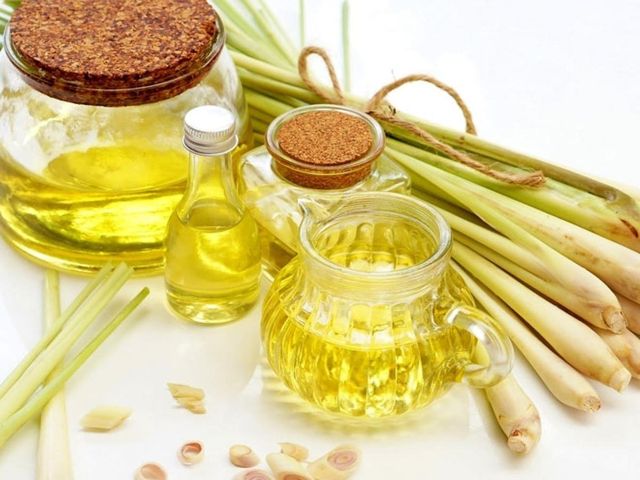Product Description
Lemongrass essential oil comes from the lemongrass plant, which grows in tropical and subtropical parts of the world. The oil can be bright or pale yellow with a thin consistency and a lemony scent. People have used lemongrass in traditional medicine for pain relief, stomach problems, and fevers. Its antioxidant, anti-inflammatory, and antifungal properties may also give it other benefits. In this article, learn about the possible benefits of lemongrass essential oil, as well as how to use it, and if it has any side effects The authors of a 2016 in vitro study found lemongrass essential oil to be effective in fighting strains of the Acinetobacter baumannii bacteria. This multi-drug resistant bacteria can cause pneumonia and blood infections. As the lemongrass essential oil was effective in inhibiting and killing off the bacteria, it could be a complementary therapy in the future for fighting illnesses that do not respond to antibiotics. In another studyTrusted Source, a concentration of 2% lemongrass essential oil gel inhibited the growth of bacteria that cause gum disease. During this small study, 15 people with multiple sites of gum disease in their mouths took part. The participants applied the gel to the location of gum disease along with nonsurgical dental therapy. The authors compared the results to a group just using nonsurgical dental therapy. Lemongrass essential oil and nonsurgical dental therapy increased tissue healing more than nonsurgical dental therapy alone. Reducing inflammation Chronic inflammation can cause many health problems, including arthritis, diabetes, and some cancers. A 2014 studyTrusted Source showed lemongrass essential oil to have potent anti-inflammatory effects in mice with fungal infections. The researchers concluded that, while more studies in humans are necessary, lemongrass essential oil may help treat skin inflammation in the future. Combating fungal infections In the same 2014 studyTrusted Source, the researchers looked at the in vitro effects of lemongrass essential oil on specific fungi, including Candida albicans, which is responsible for yeast infections and thrush. The essential oil had a “promising” antifungal effect, which leads the authors to state that it could have potential use in the treatment of fungal infections. More robust studies in humans are necessary, however, to confirm the effects. Providing antioxidants Antioxidants help fight harmful free radicals and oxidative stress in the body, which may help reduce signs of aging and the risk of many diseases. In a 2015 study, lemongrass was shown to have strong antioxidant properties and was effective in scavenging free radicals in an in vitro experiment. The authors of an earlier 2011 study also found that lemongrass oil mouthwash had antioxidant effects. The research involved 40 participants, including people with gum inflammation, or gingivitis. The researchers tested the antioxidant effect of lemongrass oil mouthwash at three different concentration levels and found that is showed antioxidant activity at all concentrations. These results may make it a useful addition to a regular dental hygiene routine. Treating stomach issues Studies suggest that lemongrass essential oil may help treat stomach issues. Some research has suggested that lemongrass essential oil might help treat issues affecting the stomach. A 2012 study on an animal model looked at the effects of lemongrass essential oil on stomach ulcers resulting from ethanol and aspirin damage. Stomach ulcers are sores on the lining of the stomach that cause stomach pain. The study found that lemongrass essential oil provided protection against damage in the stomach and could be a potential remedy for these types of ulcers. Furthermore, eugenol, which is a component found in lemongrass essential oil, may help relieve pain and treat stomach upsets and diarrhea. Easing rheumatoid arthritis Lemongrass essential oil may help reduce the symptoms of rheumatoid arthritis, most likely due to its anti-inflammatory properties. A 2017 study looked at the effects of lemongrass essential oil on 30 people, between 35–70 years old, with rheumatoid arthritis. The researchers gave each person 3 milligrams of lemongrass essential oil to apply for 30 days. Over time, the participants reported less pain. Relaxation and massage A popular use for many diluted essential oils is for relaxation and massage. One study looked at the effects of lemongrass oil when people use it as a massage oil. In the study, researchers measured the participants’ pulse and blood pressure before and after they had a massage with lemongrass oil. Each person received a massage once a week for 3 weeks. The researchers found that the lemongrass oil massage reduced diastolic blood pressure but had no effect on their systolic blood pressure or pulse. They said it could have a “harmonizing effects” on the nervous system. Helping headaches An older study from 2009 argued that lemongrass essential oil might be effective for treating headaches. While there is limited evidence to support this, lemongrass is a common headache treatment in Australian traditional medicine.



